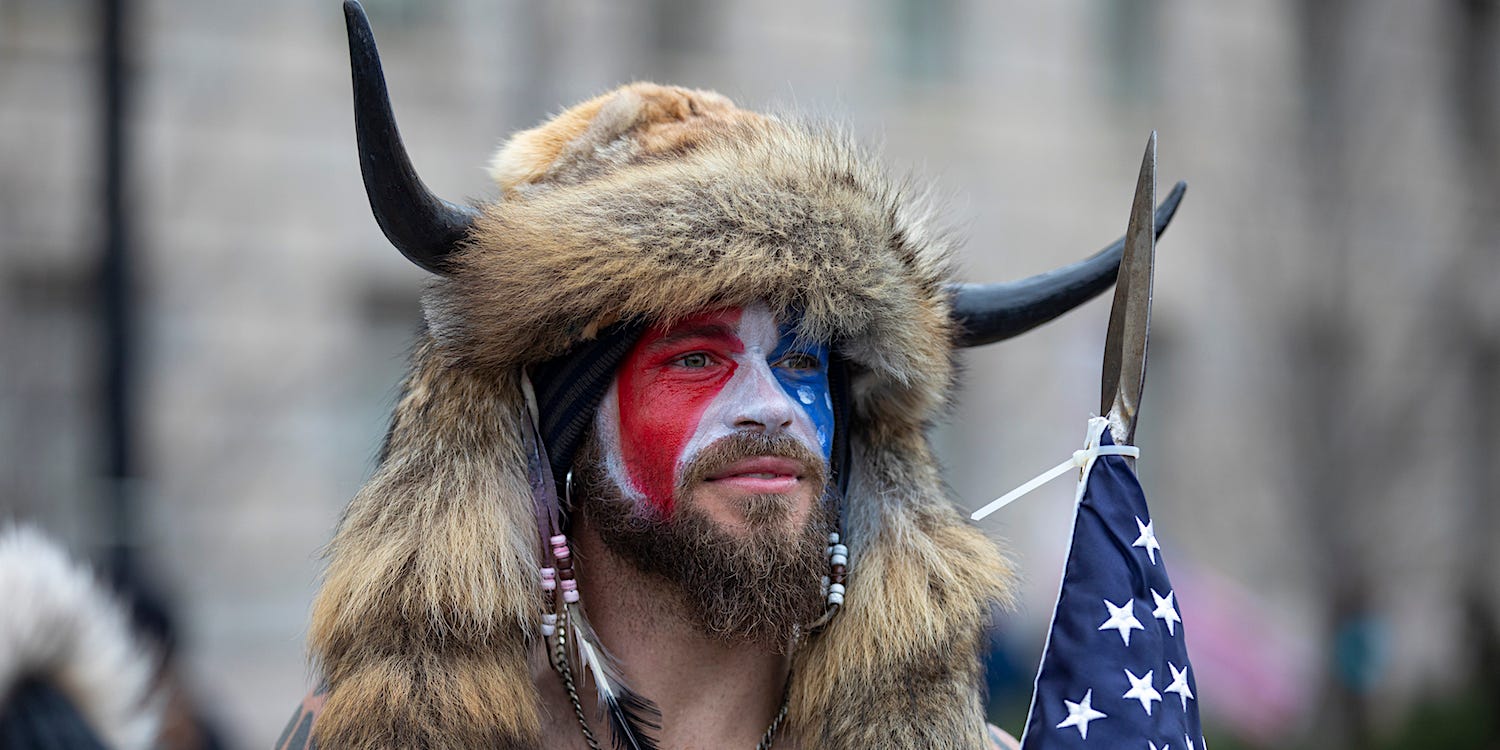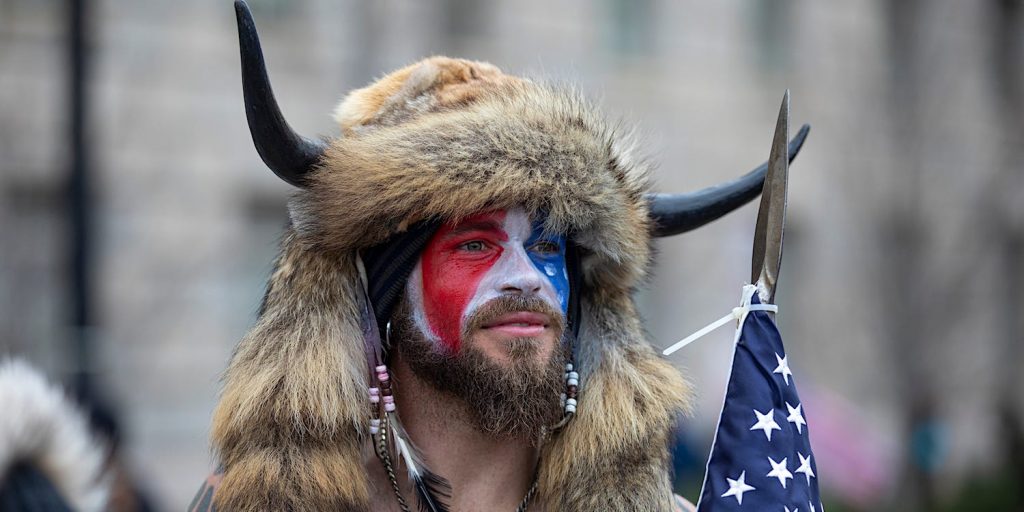
Robert Nickelsberg/Getty Images
- A federal judge rejected Jacob Chansley's third attempt at freedom in eight months.
- The judge ruled the notorious "QAnon Shaman" failed to prove he would not pose a flight risk or danger.
- The decision comes one week after Chansley pleaded guilty to a criminal charge related to the Capitol attack.
- See more stories on Insider's business page.
"QAnon Shaman" Jacob Chansley will remain in jail ahead of his sentencing on a felony charge related to the January 6 Capitol riot, a federal judge decided Thursday.
US District Judge Royce C. Lamberth's decision marks Chansley's third failed bid for freedom since he was arrested eight months ago. The ruling comes one week after Chansley pleaded guilty to obstructing Congress from certifying the results of the 2020 presidential election.
Adorned with horns, a headdress, and face paint, Chansley became one of the most recognizable faces at the Capitol on January 6. He was photographed walking with his bullhorn and flagpole throughout the building that day and was arrested three days later in his hometown of Phoenix, Arizona, where he was charged with two felonies and four misdemeanors.
In the months since the attack, Chansley's notoriety has only grown with the help of a jailhouse interview, specific accommodation requests, and frequent updates from his attorney, Albert Watkins.
Watkins said last week that Chansley spends up to 23 hours a day in solitary confinement, despite not being violent. The St. Louis lawyer has been fighting for months to win pretrial release for Chansley but has failed three separate times.
Chansley's most recent bid for release was filed in July with the request that Chansley be freed to see his ailing grandfather, Watkins said in a Friday press release. According to the lawyer, Chansley's grandfather was the "only adult male constant" in his life.
"Judge Lamberth denied the compassion based request," Watkins said in the press release. "On that same day, Mr. Chansley's grandfather passed away."
In order to win release, Chansley was required to provide "clear and convincing evidence" that he would not pose a flight risk or danger to the community. In his ruling made public Friday, Lamberth said he failed to do so. According to court documents, although Watkins had made arrangements for Chansley's lodging and mental health treatment, Lamberth said he failed to show how Chansley would be prevented from fleeing the area.
Prosecutors have previously alleged that Chansley's standing in the QAnon community posed a concern that his fellow conspirators could help him raise money to flee - a possibility Lamberth also cited in his decision.
Earlier this month, Watkins said Chansley had "repudiated the moniker Q" and rejected the tenets of the conspiracy group.
In his filing, Lamberth also rejected Watkins' claims that Chansley's dying grandfather could spark worsening mental health problems or "psychologically trigger" the defendant.
Watkins on Friday said the decision marked a "sad day" and indicated the US legal system is ill-equipped to appropriately handle those with mental health disabilities and vulnerabilities.
"With great sadness and regret, there was simply nothing more I could do to permit a gentle, smart, and kind young man the opportunity to spend a few minutes at the side of the man who raised him to say 'good-bye' one last time," he said.
Chansley heads to sentencing on November 17, where sentencing guidelines suggest he could face 41 to 51 months in prison. Watkins will argue for probation.
